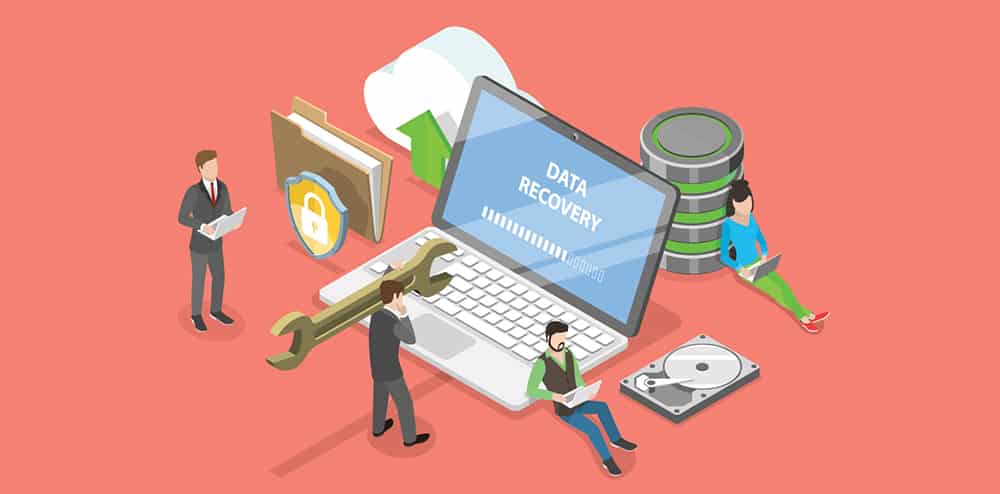Latest News:
Recipe For Recovery

Victor van der Poel, director at Accesspoint Technologies, tells LPM about the importance of preparing for disaster – and how to create an effective plan
Are SME firms prepared for disaster? In the past, they mainly had to contend with fire or flood, but in an increasingly digital world there are more catastrophes waiting to strike than ever – and firms may not be as prepared as they think.
Victor van der Poel, director at Accesspoint Technologies, says there are numerous disasters that could cause businesses to cease operations for hours, days or even weeks – but perhaps the most common and damaging are tech failures.
“Firms rely so heavily on their technology that a failure in their systems could be disastrous. What would happen, for instance, if someone dug into a law firm office’s main comms feed, or an upstream provider made a mistake configuring a central piece of routing equipment, which happened last year in a central London datacentre and forced a major part of London offline? Could the business survive without communication with clients for that time?” He adds that these disasters are simple yet frequent and often have devastating effects on businesses.
Though there are no magic-bullet solutions to prevent disaster, but Van der Poel says most risk be mitigated with an efficient and effective disaster recovery and business continuity plan in place.
“Many businesses don’t prepare for disaster until one forces them to. Some are lucky enough to endure their first tumble and rectify any serious issues, but others are forced to cease trading shortly after the disaster strikes. It’s incredibly important to prepare and make sure that the business can not only recover after a catastrophe but continue to operate virtually undisturbed.”
He adds that developing a disaster recovery and business continuity plan can seem complicated, but it’s simply a matter of looking at the key points of weakness in a business and preparing for them.
“Legal managers should ask themselves: What happens if a fire or tech failure occurs – can everyone work from somewhere else so that daily operations aren’t negatively impacted? Is our data safe? What can I do to get everything back up and working as quickly as possible?” These plans can, according to Van der Poel, be supported with the right legal tech solutions, “leaving firms on cloud nine.”
Storm or Cloud?
Van der Poel says a key area of weakness in any business is premises – particularly for those whose staff are tied to their desks.
“If no one can access the firm’s premises – perhaps because it’s been damaged by fire, weather or projectiles – or the building loses its ISP comms connection for a prolonged period, employees won’t be able to work and the business will lose money.”
But, he adds, if businesses embrace the cloud – which allows employees to work from virtually anywhere with a decent internet connection – they can incorporate it into their business continuity plan.
“Cloud technology should be part of any effective business continuity plan. We have clients that’ve lost connectivity with their offices and within 30 minutes were able to redistribute employees to other offices or remote locations, such as their homes of coffee shops, where they could continue working. This significantly reduced the impact of these disasters on their businesses.”
Van der Poel says that cloud services have the added benefit of enabling employees to work with the same applications as they would use on their office desktop, which allows them to work at full capacity from their remote posts. In particular, he adds, a cloud-based email platform will give workers full access to their emails – which is particularly important for fee earners who need to keep in touch with clients.
“If your emails are stored on an internal server then a business will lose access to them if they lose connectivity or are for any reason forced to leave the premises. But with managed emails, they can be accessed anywhere.”
But, he continues, law firms shouldn’t assume they’re safe just because their IT infrastructure is hosted.
“The mistake most businesses who host their platforms make is assuming they’re guaranteed uninterrupted access to platforms and data – but that isn’t necessarily the case. Technology remains technology, and whether it resides in your office or hosted in state-of-the-art datacentres, hardware will fail. You need to make sure that your provider is prepared for that.” He adds that Accesspoint, by example, structures its datacentre so that there’s no single point of failure, using dual data feeds to mitigate the risk of connection losses.
Save the Data
Van der Poel says that business continuity is only half of an effective disaster plan – the other half is recovery. And perhaps the most important element of disaster recovery is data retrieval.
“In a digital world, data is worth its figurative weight in gold – but data can be destroyed or corrupted.” He adds that if firms want to make sure their data is safe they need to make sure it’s frequently backed up to a safe location.
“Regularly backing up data is vital to disaster recovery, but it is a monotonous process – which is why many firms use a hosted provider that will store data safely on cloud servers.” Accesspoint, he adds, backs up all its clients’ critical data as part of its standard service.
The problem, however, is that no matter how sophisticated backup software has become, vast amounts of data still can’t be recovered within an acceptable time for a business – but there is a solution.
“With Accesspoint, for example, clients can also choose to have their hardware replicated in real time, allowing them to switch to cold standby platforms (which is replicated in real time with your production environment) in minutes.”
Creating an effective disaster recovery and business continuity plan can seem like a daunting process, but it is vital for any business that wants to survive should the worst occur. It’s a complex issue, but Van der Poel says there are a few easy solutions firms can adopt to make sure they’re covered. If firms backup data, use cloud-based applications, and choose an IT provider which has taken every precaution against disaster, they should survive if disaster strikes.
